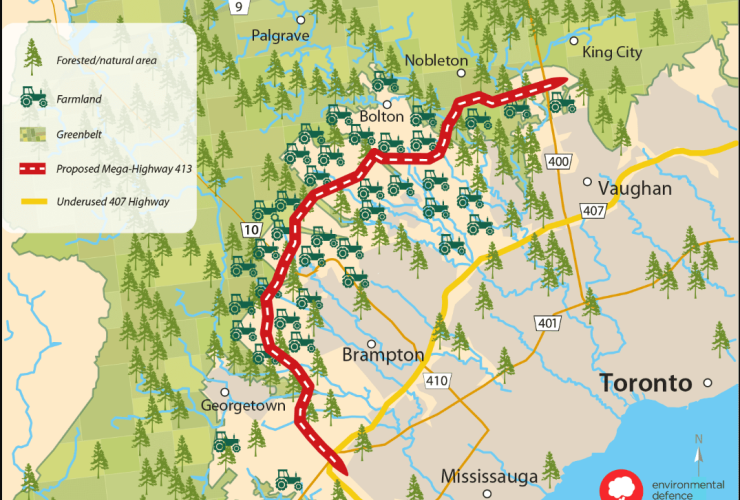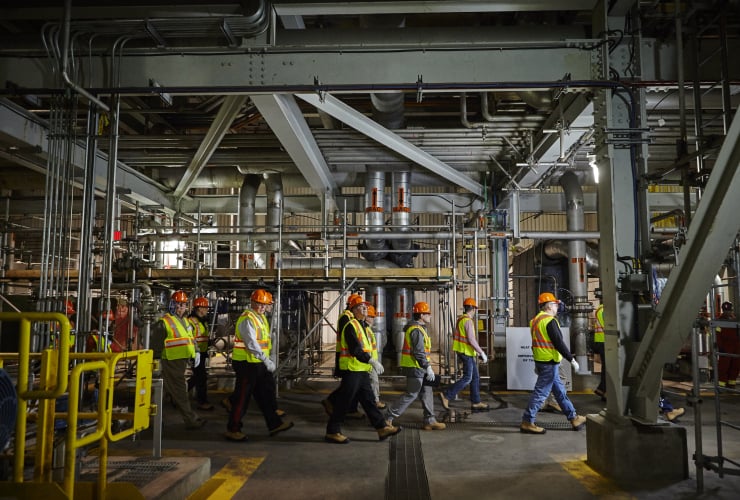Support journalism that lights the way through the climate crisis
Other than a shared disdain for Pierre Trudeau and a fondness for picking political fights with Ottawa, Alberta and Quebec have never had much in common. But for all their criticisms of the federal equalization program and Quebec’s dependence on it, conservative politicians in Alberta have been nurturing a long-standing crush on their provincial counterparts and the power they wield in Confederation. That infatuation has reached a new fervour under Premier Danielle Smith, who might not be able to speak much French but is already fluent in Quebec’s unofficial language of grievance politics.
In fairness, this relationship dates back to Peter Lougheed and René Lévesque’s common front against Pierre Trudeau and his quest to repatriate Canada’s Constitution. It was renewed by Jason Kenney with his “Fair Deal Panel.” But Kenney, who spent many years in Ottawa and clearly sees himself as a Canadian as much as an Albertan, never really had his heart in it. Smith, on the other hand, is madly in love.
Her case for an Alberta Pension Plan after all revolves around the existence of a made-in-Quebec plan, which tends to orient its investment strategies to the province’s economic interests. And like the Quebec separatists of yesteryear who thought they could separate from Canada while still retaining its currency, trading relationships and other benefits of Confederation, Smith enjoys pretending Albertans can have their cake and eat it too when it comes to pulling out of the CPP.
Likewise, the notion that Alberta should collect its own income taxes is drawn straight from Quebec, where residents must file two different tax returns every year. Both ideas come with all sorts of extra bureaucracy and red tape, which are supposed to be two of the conservative movement’s big enemies. But as we’ve come to learn over the last few years, there’s almost no cost too big when it comes to owning the Libs — especially those associated with Justin Trudeau.
As professors Daniel Béland and André Lecours noted in a recent paper, “There is strong evidence of political diffusion from Quebec to Alberta, something Alberta political actors are not trying to conceal. In fact, they mention Quebec as a model on a regular basis, as they look for leverage for increasing the autonomy of their province and its influence in the federation.”
There’s just one thing missing: A federal party that will actually stand up for Alberta’s interests. Yes, that’s how the Conservative Party of Canada would identify itself, but the Stephen Harper years showed it’s far more interested in advancing its own agenda. And why wouldn’t it? With Albertans and Saskatchewanians serving as a loyal and reliable voter base, there’s no need to put forward policies or ideas that might play well there but poorly in places like southern Ontario or Quebec. It’s why, for all of Harper’s talk about equalization before he became prime minister, he barely touched it while he was in power.
As I wrote back in 2019, “If Albertans want the rest of Canada to take their issues more seriously, they’ll have to do something even more radical than push for separation: stop voting Conservative.” Unless and until they put their votes in play the way Quebecers have consistently, they’re not going to get the same degree of attention from federal politicians. Case in point: In the last five federal elections, the caucus coming from Quebec has had a majority of its MPs hail from three different parties: Liberal, NDP and BQ. Since 1968, Alberta has only sent more than three non-Conservative MPs to Ottawa twice (1993 and 2015).
As Béland and Lecours argue in their paper, “Without a credible secessionist threat, territorial politics in Alberta is unlikely to generate the same type of pressures that have been associated with Quebec for the last half-century.”
Don’t bet on that credible threat emerging any time soon. The Maverick Party, led by former CPC MP Jay Hill, was a monumental flop in the 2021 federal election, and the odds of conservative Albertans jumping ship on the CPC right as Pierre Poilievre seems poised to grab the reins of power are about as good as my odds of getting elected as a federal New Democrat in Calgary. In Alberta, it seems, the political beatings will continue until morale improves.
As if to add insult to injury, Quebecers continue to turn their backs on Alberta’s primary industry and cultural touchstone: oil. According to a recent poll from Léger, nearly nine-in-10 Quebecers think oil and gas companies should be regulated so they reduce their emissions. In other words, they support the very federal emissions cap that is so loathed by the Alberta conservatives trying to imitate them.
“With such a high rate of support from the population of Quebec for regulation of the Canadian oil and gas sector, the federal government has free rein to act and be ambitious,” said Anne-Céline Guyon, climate and energy analyst with Nature Québec. “Quebecers want this sector to finally face its responsibilities and finally do its fair share. This means, among other things, that all regulations must be aligned with the 1.5 C objective.”
In other words, Quebec is the driving force behind the federal policies that Alberta finds most objectionable — and which are powering its push to become more like Quebec. Like most unrequited romances, this one seems destined to end in tears.
In trademark conservative
In trademark conservative style, i.e. completely free of context at all times, no note is taken of the fact that Quebec has in fact already held TWO referendums on separation which both failed despite the unique and distinct "French fact" that DOES actually entitle them to a bona fide claim. They are considered to be the other "founding nation" of Canada as it were.
Clearly there was/is a fractious element in that province but it was also open and direct about its aims so held two referendums, in part because the results were close. That element remains, albeit at a simmer, but the province seems to have settled for the same leverage that the UCP now wants based on nothing but their unique brand of hubris.
"Hubris" is true understatement when the context they so steadfastly eschew is ALL, as is the case with the ubiquitous ENVIRONMENT, but these fools not only blithely ignore that pressing reality as if they already lived on Mars, they also trumpet loudly and proudly how their continued focus on fossil fuel production in the middle of a climate emergency CAUSED by said fossil fuels rightly qualifies them for special treatment. Because they have "special needs." That at least is true.






Comments